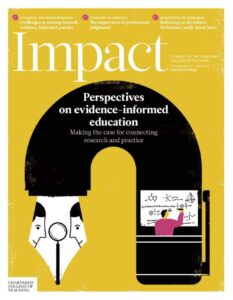Jude Hunton considers research on learning for examinations and the kinds of effective strategies that can be gleaned from research on testing and memory. Teaching can be a bizarre job at times. There might be a zillion competing distractions for the individual teacher; many of these will buffet and blast us as intrepid professionals hither and thither, causing drag against dynamism, and keeping us from exerting our passion with scholarly force upon the Thing Itself. I believe, however, that things are beginning to change. Increasingly, I have come to hold the view (and note approvingly that it appears to be a socially prevailing one) that research and evidence-informed approaches are providing sceptical ballast to keep us on an even keel and resist much of the institutional backwash. And I've found, while working alongside other inspiring professionals at my school, that we can adapt theory, research and education evidence into productive practices that enhance teaching and lear
Join us or sign in now to view the rest of this page
You're viewing this site as a guest, which only allows you to view a limited amount of content.
To view this page and get access to all our resources, join the Chartered College of Teaching (it's free for trainee teachers and half price for ECTs) or log in if you're already a member.












